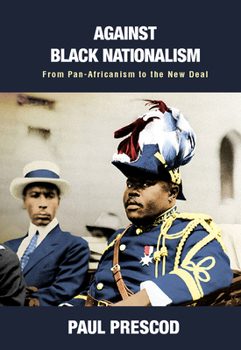Against Black Nationalism: From Pan-Africanism to the New Deal
Why did Garvey's Black nationalism collapse while Randolph's labor organizing reshaped American politics? This book traces the roots, and the relevance, of two competing visions for Black liberation.
From Nationalism to the New Deal examines two major currents in twentieth-century Black political history: the meteoric rise of Marcus Garvey's United Negro Improvement Association and the long campaign led by A. Philip Randolph to organize the Brotherhood of Sleeping Car Porters. Through a careful study of their approaches, the book asks why Garvey's movement ultimately lost momentum, while Randolph's efforts contributed to lasting gains for Black working people.
The book argues that Garvey's popularity emerged in a period of political exclusion, but his message and goals were aligned with the interests of a frustrated black bourgeoisie. In contrast, Randolph focused on building class-based organizations rooted in the labor movement, connecting Black struggles to broader demands for economic justice and democratic participation.
This analysis challenges race-first frameworks that remain influential in Black politics today, suggesting they often reflect the interests of a professional class increasingly removed from working-class concerns. The book also addresses the tendency to dismiss the New Deal as simply racist, offering a more nuanced view of how New Deal programs and labor organizing intersected with Black civil rights efforts.
Grounded in historical research and engaged with present-day debates, From Nationalism to the New Deal highlights lessons from the past that remain relevant for anyone interested in the future of racial and economic justice.
Related Subjects
History Political Science Politics & Social Sciences Social Science Social Sciences




